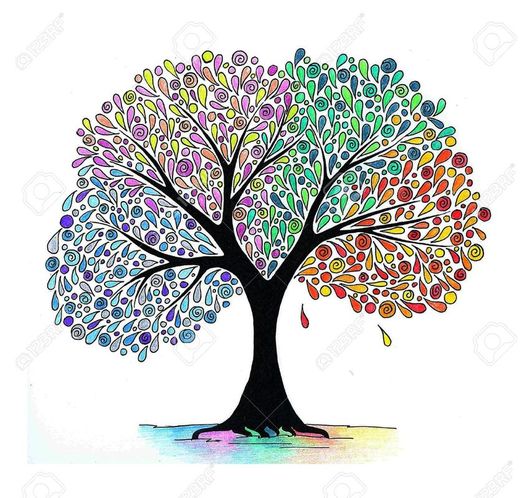|
In the course of several conversations with business associates, and friends, I have been reminded of one of the often unrecognized differences in social media usage. There are two different cultures when it comes to business pages and personal pages. But many people are unaware of these cultures. While we were discussing her unused facebook business page an acquaintance said, "Well, we won't be pursuing social media. I have known too many friends and family who get really upset when trying to decide to "unfriend" someone. It just takes up time."
And amongst friends, particularly when I have commented on part of a post on my personal page, I am asked, "Haven't you been following the discussion?" Usually the answer is, "no." Not because I don't care about what is happening with my friends, but because my main social media time is for my business. Now I will grant that the line can blur in social media, particularly if business associates are following your personal page. And friends are following your business. Yet, there are still differences in the cultures. And I compare it to the difference between a business lunch, and a cookout. The first difference obviously are the topics. At a business lunch the discussion is more focused. At a leisurely cookout the topics could flow all over the board. Behavior is another. Professionalism normally holds sway over a business luncheon with the associates behaving with a certain level of decorum. At a cookout you might kick back, and relax. Or show your true feelings. Transparency is one of the keywords of social media. So business people do need to be more aware of what they put on their personal pages, and to whom the post goes to when you write something. There are ways to post to only close friends, and to avoid seeing postings from "friends" that annoy you, even if you don't want to "unfriend" them. With business pages you are focusing on the story, and brand, you want to present to the public, and that is with the full understanding that what is posted is public. If personally a business owner doesn't want to be involved with social media there are ways to make personal pages fairly private. So there is no reason to consider social media just an exercise in a high school mindset of "they don't like me anymore." You can go to the business lunch, but if you want, you can turn down the invitation to the cookout.
1 Comment
I'm going to say up front that I love when a business hires me to handle their social media marketing; not only because of the business itself, but the chance to design a program that works for my client. However, before any business takes a step towards social media as a marketing tool, whether on their own, or letting someone else handle it, there are new developments they need to take into consideration.
Not that long ago a Facebook business page offered a great opportunity for free marketing, and everyone had heard the stories of the pages that became phenomena in their own right. And the common cry was, "You have to have a Facebook page!" And that was what many businesses did, particularly the smaller ones. Some of those pages are now sad, empty virtual store fronts, but other businesses have dutifully posted to their pages. Maybe not every day, maybe not every week, but they posted. Unfortunately that faithfulness isn't offering the rewards it once did, and in truth hasn't in a while. What has been happening is that Facebook has truly become a corporation, and has been decreasing its "organic reach" (how your free posts appear in newsfeeds). And they are doing so again. Rumor has it that the changes is so that businesses will buy Facebook advertising, or buy "likes" to boost a specific post, and there is a strong likelihood that rumor is true. It has always been true that if you aren't active on Facebook (at least 3 times a week) that your posts would get bumped from newsfeeds by more active pages. This also requires having "sharing" and "liking" occurring. Now this is even more so. The truth be told, you can't just concentrate on Facebook. All of the social media platforms are intertwined. So to have it worth your while you need steady activity on Twitter, Google +, and Linkedin (at minimum). We won't even get into the power of original content (blogs) or YouTube. This is where you need to decide whether you can commit to social media. Small businesses always have had challenges when it comes to marketing. They try very hard to stick to flyers and business cards they can do themselves. Maybe get a free website up. And try to do a bit with Facebook. However there comes a time when you have to go to a printer, or get professionally done business cards, and its the same with social media. You have to ask yourself whether you have the money, or the time, to make it work for you? Whether you work in an office, or your business is out in the elements, your business has seasons. And most people can track those in their minds, even if they never put the information to paper. You know when the peak times are, and when the slow times stretch. You also know why. And for those with seasonal businesses you know that there are fluctuations within the seasons, which will affect you. A wet spring? A steamy summer? Those fluctuations require different reactions.
All of this is the mother lode of content! And at the beginning of the year is the perfect time to sit down, and do an outline of your season. While you are doing this, ask yourself some questions. 1. Can you give a head's up to your clients about what is coming up? Can you put out a call for action? 2. What suggestions can you give to them? What tips? 3. What causes your slack times? What types of promotional can you use to head them off? Or at least ease them. 4. If your work is seasonal, what can you suggest for preparation for the coming season? 5. What should your clients know about weather related delays? Of course, there are also those who are just starting out, and don't know your "seasons" yet? Then you take a hard look at your products, or services. And ask yourself, what stories can you tell about those products or services? Start off by telling about yourself. Your personnel. Why you were passionate enough to have started a business. Spend time detailing aspects of your products, and services. Information - not just sales pitches. And tell about your passions in the community. What are your favored charities? Where do you pitch in? Established or new - tab into your seasons! I am starting to think that one of the scariest thing for many business owners is that social media demands ongoing activity. The fact that business is coming into an era of "digital word of mouth" is intimidating.
Recently I was speaking with a prospective customer, and was working with a new approach. I had decided to develop this approach because I thought the term "social media" was what was terrifying people. So I set off to explain that instead of worrying about the technical end of social media that they should first think of it as doing what they always did - interacting with their customers. To look at it as an extension of the local word of mouth. As we were discussing traditional advertising, and what made this different, I pointed out that standard advertising was one way. You develop your flyers, your newspaper ads, T. V. spots, and radio strategies, and all of these are sent out into the great world. And basically, unless someone mentions any of the business's advertisements, you will never really know what brought the customer in. With social media you have a better chance of interacting with your customers, and giving them a chance to know you. They know they can contact you quickly from any number of mobile tools, and express themselves in "real time." And as I was listening to my potential client I realized that it may not be a fear of the term "social media," but stage fright. That the need to come up with interesting material on a weekly basis caused him to freeze. It didn't matter that I can help with finding content - it was that owner input would be required. Nor was it just a terror of needing original content it was that there had to be a consistent strategy. This also got me thinking of some of my other clients. When I am setting up for a new client I will talk to them about the aspects of their business that could be used for blogging, or helpful hints. And I will also ask about organizations, hobbies, and charities they are involved in. The later gives me filler material to work with when I don't have original content. The first response I often get is, "Oh, I'll leave that to you!" I always do a follow up email after the initial fright goes away. In the email I will ask the same questions, and usually get better input. Really it is a case of realizing that while social media is more interactive that basic marketing still applies. The business owner knows their products, and when they create the standard advertising they know they will need images and focused content. With social media you need all of that, but you also need to have an idea what you want to do week to week. You need to know consistently, "what is the meat of the story?" This time around I am going to focus on public opinion and communication. Letter writing has always played a huge role in the spread of public opinion, with an example of this being during the heydays of immigration. In A True Picture of Emmigration, by Rebecca Burlend, the author told how her husband listened for news of letters coming from America. Then he would go and hear what was said of conditions in the U.S.. Nor can the power of the coffee and chocolates houses be forgotten - as those gathering places were where politics and popular opinion were vehemently discussed.
Jumping ahead to today, and particularly to the oft-bemoaned fact that everyone has their nose in their smart phones and tablets. And while I will admit that I too bemoan this on occasion it also cannot be ignored. Or, it might be better to say, "It is risky to ignore." The forums for public opinion have changed, and become lightening fast.... ......Pictures of a restraurant dinner on Facebook are usually sent with a comment..... ......Bored people, waiting in line, having nothing better than to Tweet their status...... Basically opinions of businesses and services fly with the speed of thought. And businesses can only ignore this at their risk. If you don't "hear" what is being said then you cannot highlight the praise, or show solid customer service, if there was a problem. Nor can a business afford to focus on just one "window" into the thoughts of their customers, because their clients may use a Tweet one day, or a FB post the next. Or they may be on a tablet, and writing a longer review on Google Plus. In every business "how to book" and seminar one of the main emphasize is networking, and it is accepted as common sense that to build your business you have to know a range of people. Sometimes these are people you meet at networking groups. Sometimes it is an acquaintance you meet at the grocery store. And it is a solid practice. A practice that hold true for your Facebook, Google +, Linkedin, and Twitter interactions. And even Pinterest - "pinning" makes a difference too. When you "like," "follow," "connect," or "create a circle" another site, or customer, you begin to get their postings in your "newsfeed." Your newsfeed is usually found in your "home" on most of the platforms. However, what you see in your newsfeed is not, at that point, showing up on your public profile. This holds true for either personal, or business, pages; both of which have "home" icons and newsfeeds. Those postings in your newsfeeds offer a wonderful chance to help out your business associates and clients. As you read through your newsfeeds you can also share or retweet your colleagues' postings, and with this you help broaden their visibility. And remember, if you are pleased with their business - add a comment, or recommend them. So, when you go out to post, keep your business friends in mind, and help them out. It not only will help strengthen their web presence, but yours' too. "'Like' us!" "'Follow us!'" "'Friend' us!" More often than not we take "likes," "friends," "follows," "sharing," "retweets," and "endorsements" for granted; requests for them happen so often that they become background noise. Or an annoyance. For a business page, however, they form part of the life blood of the media interaction, particularly since search engines are more heavily tracking social media traffic. What most don't realize is how thrilling a "like" or a "follow" can be to a business starting off into the strange world of social media. And comments of satisfied customers can make a owner's whole day. In truth, this holds true for most small businesses and their social media accounts. Activity means that people are staying aware of the business and their services. Yet with the demands of keeping up with their own media platforms businesses sometimes it is easy to forget to return the favor for their customers. For business to business relations "liking" a customer's page helps build activity for both, and to take that a step further - sharing posts between pages really helps. And it goes beyond that too; by keeping up with clients' pages, personal or business, you learn what is important to them. Plus you learn where you can help - whether as a business or as a person, by supporting their favorite causes. So when you are out posting to your own social media sites make sure to look in on your clients'. Like their pages. Endorse their talents. And share generously! Whether presenting to an a live audience, or via the power of a digital medium, a well-told story matters. A well-crafted story builds connections, and begins the process of trust.
It has been said, to the point of cliche, that we are being bombarded with information, and even if it is a cliche it is also true. Everyone, particularly every business, wants our attention. And yet, conversely, despite the flood tide of information and marketing that the digital age has brought about, it has also been said that that it can bring businesses and customers closer together. This is particularly true for local businesses, with a target market of their hometown, and the surrounding areas. The local business that makes effective use of social media is able to have a better feel for their clients, and the clients feel that they have a say. So how do stories factor in? In order to create a environment for client loyalty the business, and its owner, need to present a powerful tale about that business. What was the spark for the beginning? Who are the people that have made it grow? What is the driving focus and belief? And equally important, how have the company, and their staff, supported the community? The key to the story's power is that the presenter needs to be honest in their tale. The message has to be authentic, because the audience, the clients, know in their gut when the tale is a sham. They know when they are just being given what the teller thinks they want to hear. It has also been said that good storyteller, or a good writer, needs to "show - not tell" when creating their story. Businesses can do this by alerting their clients to stories about how they are part of the community, or about how they went beyond for a customer. The businesses also need to be consistent in telling their tale - it cannot be only once in a while. For a company's social media strategy this is not one short tale, but must be considered like an epic - a powerful tale told over many, many days. A tale told with variety and creativity. |
Cathy Mosley
Cathy Mosley brings her 26 years of storytelling and writing experience to the realm of Social Media. To help small businesses. Archives
July 2021
Categories
All
|





 RSS Feed
RSS Feed

